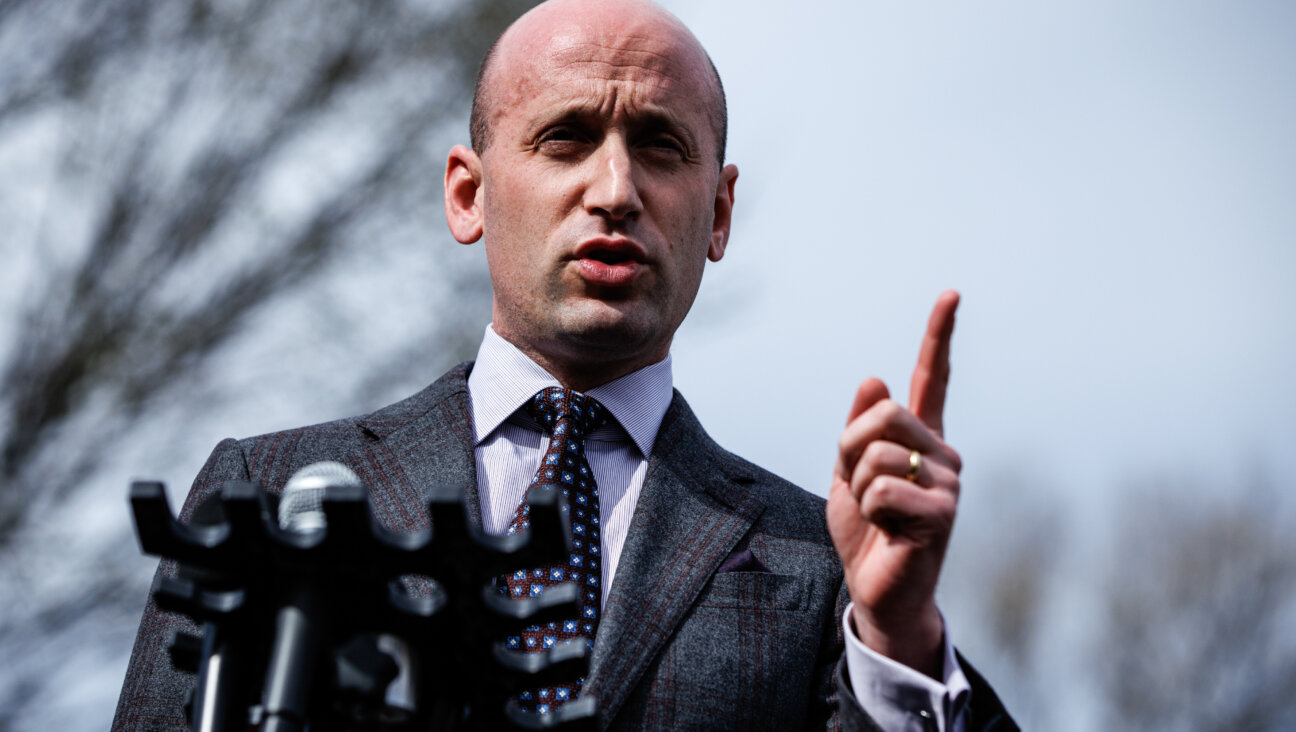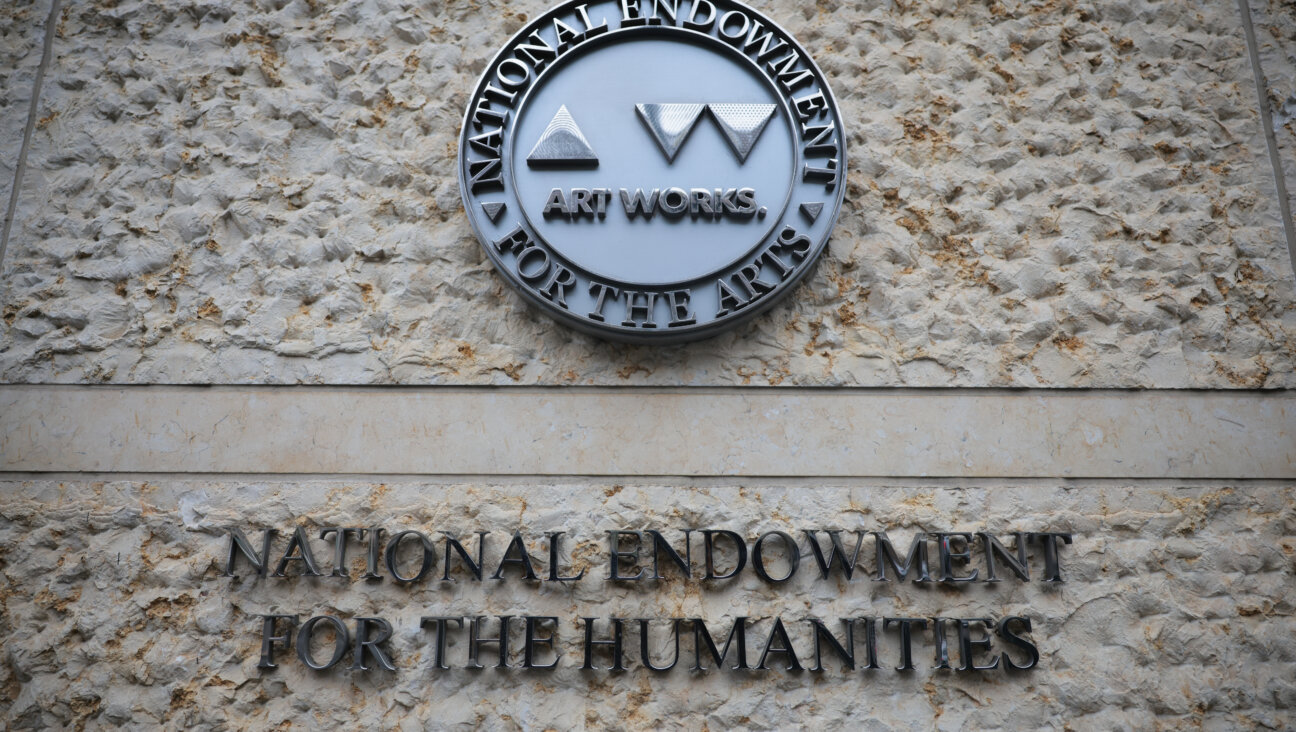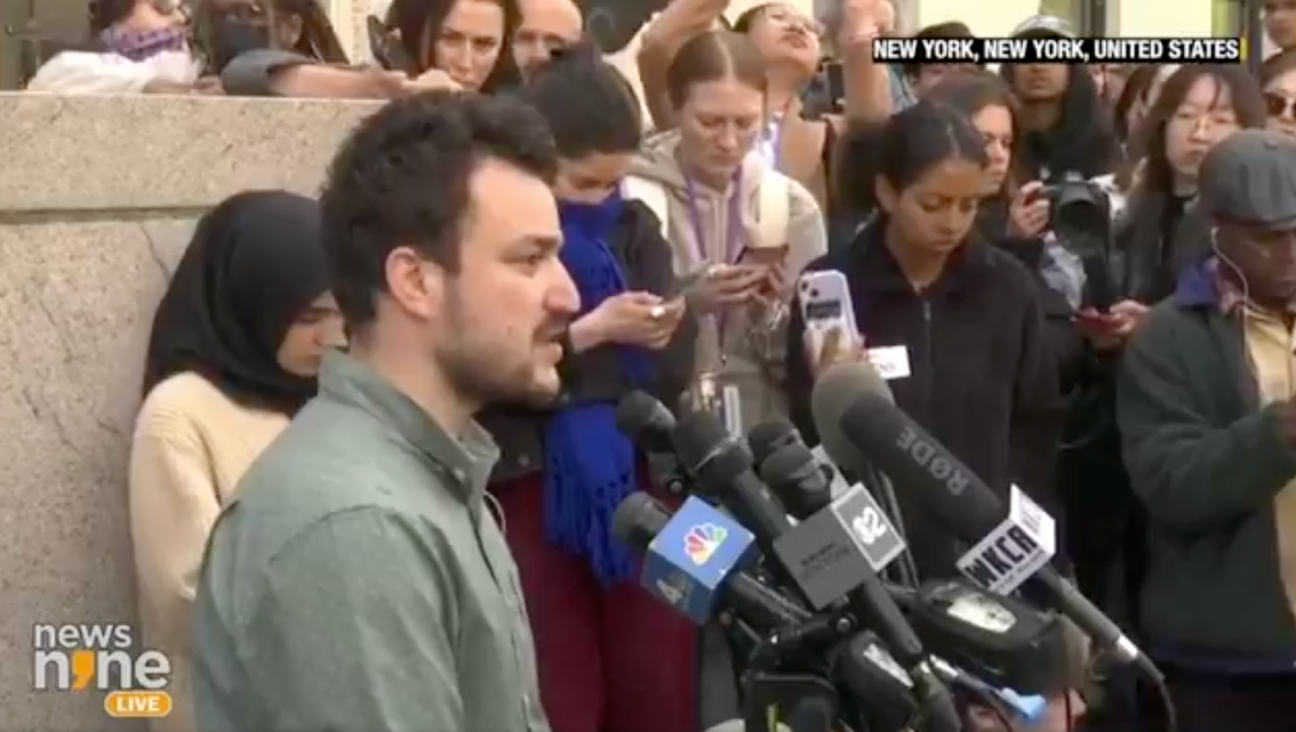Results of FBI Probe May Harm Aipac’s Reputation
WASHINGTON — The contents of the newly released federal indictment against Pentagon analyst Larry Franklin, charging him with illegally disclosing secret information to an Israeli diplomat and to pro-Israel lobbyists, are heightening concerns in the Jewish community that a second round of indictments could damage the American Israel Public Affairs Committee, the leading pro-Israel lobbying organization.
The 20-page Franklin indictment, released Monday, contains details of the inner workings of Aipac’s dealings with administration officials. Indictments are expected soon against two former Aipac officials, Steve Rosen and Keith Weissman.
The Franklin indictment appears to confirm that the FBI had Rosen under surveillance at least since the summer of 2002, and it is peppered with quotes from Rosen’s phone conversations. It depicts Aipac officials as soliciting insider information from an administration official and as being aware — at least on one occasion — that the information they had received was “highly classified.”
“There is a strong sense that when the two are indicted, a lot more crap is going to come out, and it could have serious implications for the institution,” said a Jewish communal leader with strong ties to Aipac. “These may not be legal implications, but they may very well impact on the institution’s reputation.”
Jewish community leaders seem especially worried about the body of evidence that the FBI may have amassed while surveilling Aipac. “All sorts of embarrassing things could surface in the indictments or in court, as the trial goes on,” said a senior official of one organization.
Aipac’s executive director, Howard Kohr, announced at the organization’s annual conference last month that the government had assured Aipac that neither the organization nor any of its current employees are targets of the FBI investigation.
Rosen and Weissman recently were dismissed from Aipac. Sources close to the two have confirmed that they expect to be indicted soon.
This week’s indictment sheds new light on contacts between Franklin and Israeli diplomat Naor Gilon, but does not mention Gilon, Rosen or Weissman by name. Rosen and Weissman are identified in the indictment as “Co-Conspirators 1 and 2,” sources close to the investigation confirmed, and Gilon is identified as a “Foreign Official.”
The relationship between the two Aipac employees and Franklin started in August 2002, according to the indictment. On August 5, Rosen called a Pentagon employee, who is not identified, and asked for the name of an expert on Iran at the Office of the Secretary of Defense. The Pentagon employee gave Rosen Franklin’s name. Eleven days later, Franklin called Rosen back. The two were supposed to meet a week later, but ended up postponing their meeting to February 2003. Weissman attended that meeting, as did another Pentagon official. En route to the meeting, Rosen told another person that he was excited to meet the “Pentagon guy” because he was a “real insider,” the indictment said.
One former Aipac lobbyist said that the indictment credibly reflects the way the lobbying organization cultivates sources in the administration. Rosen was the architect of Aipac’s strategy for lobbying the executive branch and led its efforts vis-à-vis the administration.
At the February 2003 meeting, in a restaurant near Washington, Franklin disclosed information on a Pentagon policy paper relating to a country in the Middle East.
The indictment contains the first public mention of the February 2003 meeting. It was not disclosed in the criminal complaint filed against Franklin by the Justice Department a month ago, on May 3.
Two days after the February meeting, Rosen and Franklin spoke again, apparently by phone, and discussed Franklin’s prospects for promotion to a position in the National Security Council. Rosen commented that working there would put Franklin “by the elbow of the president.” Franklin asked Rosen to “put in a good word” for him. Rosen promised, “I’ll do what I can.”
The indictment says that Franklin was motivated in part by hopes of promotion and in part by a desire to “advance his foreign policy agenda.” He is not accused of receiving any material compensation in return for the information he allegedly compromised. The indictment says that Gilon once gave Franklin a gift card, but Israeli sources in Washington said it was a standard Christmas gift that Israeli embassy officials routinely give to acquaintances.
A month later, in March 2003, Franklin faxed to Rosen a report he had prepared, based on a classified appendix of the document he discussed with Rosen a month earlier. The day after the fax arrived, the indictment says, Rosen spoke about the document with a journalist and said, “I’m not supposed to know this.”
According to the indictment, on June 24, 2003, Weissman called Franklin and asked him to obtain a certain document. Two days later, the two Aipac officials again met with Franklin. At that meeting, the indictment says, Franklin disclosed to the two “classified information related to potential attacks upon United States forces in Iraq,” telling them that the information was “highly classified” and asking them not to use it. He also disclosed to them “information related to the intelligence reporting activities of a foreign nation.” Shortly after they met with Franklin, Rosen and Weissman spoke about the meeting, and Rosen said, according to the indictment, that the information they received was “highly classified.” He urged Weissman to keep the “channel” with Franklin “wide open.” Weissman replied that he was taking Franklin to a baseball game. Rosen said: “Smart guy. That’s the thing to do.” Weissman and Franklin went to a baseball game in Baltimore four days later.
The indictment does not mention what has been reported to be a key charge against Rosen and Weissman: that they transferred classified information received from Franklin to Gilon, the chief political officer at the Israeli embassy. It is not clear whether that charge will be included in Rosen’s and Weissman’s indictments. Such a charge would be essential for the government to support an espionage case.
The indictment says that the relationship between Franklin and Gilon started at a Washington restaurant in mid-August 2002, days after Franklin’s name was given to Rosen. The two met several times during the following two years. Franklin is accused of disclosing classified information to Gilon on several occasions, including “information relating to a weapons test conducted by a Middle Eastern country.”
Gilon is set to return to Israel next month, a year earlier than planned. An embassy spokesman said that Israeli diplomats “did not do anything to contravene” any “established diplomatic practices.” The indictment does not portray Gilon as a “handler” operating a spy, and Franklin is not described as having been involved in espionage. Franklin pled not guilty to the six counts in the grand jury indictment.
Judge T.S. Ellis of the U.S. District Court in Alexandria, Va., set the trial date for September 6.
The Forward is free to read, but it isn’t free to produce

I hope you appreciated this article. Before you go, I’d like to ask you to please support the Forward.
Now more than ever, American Jews need independent news they can trust, with reporting driven by truth, not ideology. We serve you, not any ideological agenda.
At a time when other newsrooms are closing or cutting back, the Forward has removed its paywall and invested additional resources to report on the ground from Israel and around the U.S. on the impact of the war, rising antisemitism and polarized discourse.
This is a great time to support independent Jewish journalism you rely on. Make a Passover gift today!
— Rachel Fishman Feddersen, Publisher and CEO
Most Popular
- 1

Opinion My Jewish moms group ousted me because I work for J Street. Is this what communal life has come to?
- 2

Opinion Stephen Miller’s cavalier cruelty misses the whole point of Passover
- 3

Opinion Passover teaches us why Jews should stand with Mahmoud Khalil
- 4

Opinion Pro-Palestinian protests enriched Jewish life on my campus. Trump’s actions will do the opposite.
In Case You Missed It
-

Fast Forward Hours after Passover Seder, arsonist targets Gov. Josh Shapiro, ‘harboring hatred’
-

Culture Jews thought Trump wanted to fight antisemitism. Why did he cut all of their grants?
-

Opinion Trump’s followers see a savior, but Jewish historians know a false messiah when they see one
-

Fast Forward Trump administration can deport Mahmoud Khalil for undermining U.S. foreign policy on antisemitism, judge rules
-
Shop the Forward Store
100% of profits support our journalism
Republish This Story
Please read before republishing
We’re happy to make this story available to republish for free, unless it originated with JTA, Haaretz or another publication (as indicated on the article) and as long as you follow our guidelines.
You must comply with the following:
- Credit the Forward
- Retain our pixel
- Preserve our canonical link in Google search
- Add a noindex tag in Google search
See our full guidelines for more information, and this guide for detail about canonical URLs.
To republish, copy the HTML by clicking on the yellow button to the right; it includes our tracking pixel, all paragraph styles and hyperlinks, the author byline and credit to the Forward. It does not include images; to avoid copyright violations, you must add them manually, following our guidelines. Please email us at [email protected], subject line “republish,” with any questions or to let us know what stories you’re picking up.
















